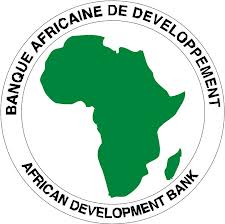The African Development Bank (AfDB) has dedicated US$4.3 billion to clean energy since 2007 to become the largest financer of clean energy on the continent.
Today, through the AfDB as a CIF implementing agency, 16 African countries – nearly one third of the continent’s 54 nations – are actively engaged in innovative and urgent climate-smart work, and 13 out of 25 projects in the AfDB CIF portfolios have been approved and are beginning on-the-ground action. The AfDB indicated this in its recently released 2013 Annual Report for its work with the Climate Investment Funds (CIF). This work is part of the bank’s larger vision to support African nations’ efforts to achieve climate-smart growth. “The AfDB’s CIF-supported work builds on a unique feature of the CIF design,” said Mafalda Duarte, AfDB’s CIF Coordinator. “To support countries in their efforts to embed climate response into their national development plans – a must if climate response is to have any lasting impact – the CIF introduced a programmatic approach to climate action, through which countries developed national-level Investment Plans (IPs) in order to qualify for CIF funding. With AfDB’s and CIF’s support, 16 countries throughout the continent have done the critical legwork to build viable IPs, and we are now underway to help them carry out the projects in their IPs.” Approved projects in the AfDB CIF portfolio comprise a total investment of $1.1 billion from AfDB and $0.5 billion from the CIF. Expected outcomes from the projects include significant reduction of CO2 emissions, increased energy access and efficiency, poverty reduction, and regenerated forests in forest-rich countries.The projects include:
Clean Energy- Morocco Ouarzazate Concentrated Solar Power (CSP)
- Morocco ONE Wind Energy
- South Africa Eskom wind and solar power
- Kenya Menengai geothermal fields
- Nigeria renewables and energy efficiency financing through local banks
- Burkina Faso gazetted forests community REDD+
- Democratic Republic of Congo addressing deforestation and forest degradation in the Mbuji Mayi/Kananga/Kisangani supply areas
- Ghana engaging local communities in REDD+
- Mozambique sustainable land and water management
- Mozambique Baixo Limpopo irrigation and climate resilience
- Niger water resources mobilization and development
- Niger climate information development and forecasting
- Zambia strengthening climate resilience in the Kahue sub-basin







